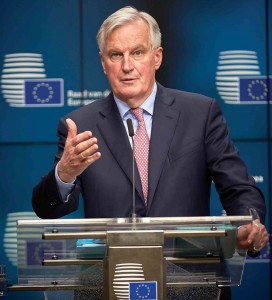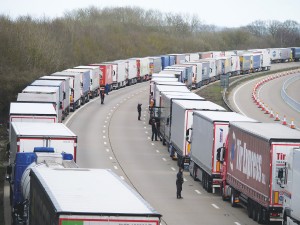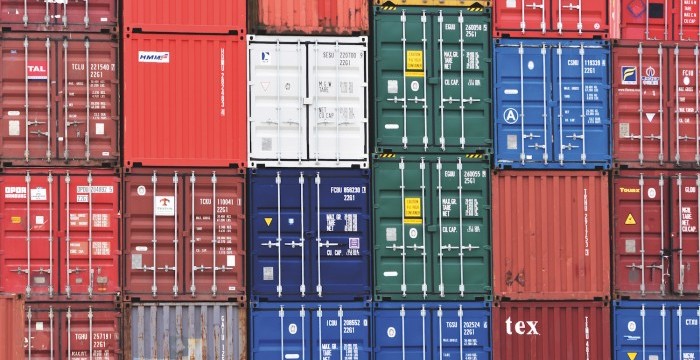The unprecedented events of the past few months have, unsurprisingly – and for many, thankfully – taken the spotlight away from our future outside the EU.
But as the end of the transition period, January 1, 2021, draws ever nearer, developments continue to take place that could have a major impact on the pig sector.
UK-EU trade talks
Both sides would have liked to have seen more progress on a trade deal by now. Prime Minister Boris Johnson has long been adamant the UK will not extend the transition period, meaning, realistically, that a deal needs to done in October for it be in place at the start
of 2021.
 The language after the latest round of talks in August was downbeat, even by the standards set so far. The EU’s chief negotiator, Michel Barnier, was ‘disappointed’ and ‘concerned’ and suggested negotiations were moving ‘backwards more than forwards’.
The language after the latest round of talks in August was downbeat, even by the standards set so far. The EU’s chief negotiator, Michel Barnier, was ‘disappointed’ and ‘concerned’ and suggested negotiations were moving ‘backwards more than forwards’.
His UK counterpart, David Frost, warned of ‘little progress’ and claimed the EU had made it ‘unnecessarily difficult’ after the UK submitted a legal text outlining its position on a trade deal.
The sticking points include the EU’s refusal to accept the UK position on fishing rights and state aid. It fears the UK is seeking unfair gains by looking to remove the ‘level playing field’ on issues such as workers’ rights, environmental protection, tax and state aid.
There is still time and Downing Street insists it remains hopeful of securing a deal within the next few weeks.
But, in a familiar refrain to last year, the possibility of leaving the EU and moving straight on to WTO trading terms, at least until a deal is in place, is very real.
Given the vast amounts of pork products traded both ways, this would have far-reaching implications for the pig sector.
“If we have a no deal or a limited deal, then the default is that we will be treated as a third country and have tariffs on exports and, most importantly, on imports,” said recently departed NPA senior policy adviser Ed Barker.
“The way still seems to be made for, at the very least, a zero tariff agreement as a framework or backstop, but this time the Government is willing to stare down the EU on tariffs and not give all the negotiating capital away.”
In May, the Government announced its UK Global Tariff, which will replace the EU’s Common External Tariff at the end of the transition period. To the relief of the industry, the regime, applying where trade deals are not in place, largely maintains import tariffs on pork products and other agricultural goods at current EU levels, reversing a previous proposal to slash tariffs on agricultural goods.
The tariffs both ways would apply immediately from January 1, although there would be some tariff-free quotas on exports to the EU, varying depending on the product.
New checks and bureaucracy
But the bigger concern for the UK pig industry would be the extra checks required on meat products and live animals required for exports to the EU. “We would be treated as a third country,” Mr Barker said.

The Government has tried to address some of the issues around potential transport delays in ‘Operation Brock’. But Mr Barker said there were concerns in particular over our ability to export breeding stock and cull sows if exports of animal products and breeding animals need physical inspections on their arrival in the EU.
“Even if a deal is agreed, it should by no means be assumed that exports of these animals and pigmeat will continue unfettered,” he said.
Around 35,000 tonnes of cull sow meat is exported to the EU each year in around 1,550 containers, mainly to Belgium and Germany, where they are processed into other products and traded around the EU again.
“The trade relies upon fast-moving containers that can reach destinations in northern Europe quickly – delays at borders for physical or administrative inspections would stop this vital trade from happening,” Mr Barker said.
UK exports of high quality live breeding pigs or germplasm to the EU mainly go by sea via Dover to Calais – nearly 16,000 breeding pigs have been exported since the start of 2019.
Even if an EU deal is reached, checks might still be required on live animal exports, but the reality is that inspection facilities in northern France are not fit to take live animals,
Mr Barker added.
The alternatives – longer ferry journeys or ‘prohibitively expensive’ air travel – do not appear to be viable, he said.
“The Operation Brock plans would render breeding pig exports to the EU entirely unviable and most likely see breeding companies move their operations to other countries, compromising our competitiveness,” he said.
However, imports from the EU will not initially face the same barriers, as the Government has confirmed it will be phasing in some of its checks on imports over time next year.
The British Veterinary Association (BVA) has warned that the veterinary sector might not have the capacity to carry out the extra checks required if no deal is in place by the start of next year.
BVA president Daniella Dos Santos said the industry was still in the dark on what level of veterinary checks on imports and exports will be required and called for clarity on the arrangements after the transition period.
trade deal advisors
Trade talks with Japan, the US, Australia and New Zealand are entering their ‘crucial latter stages’, according to International Trade Secretary Liz Truss. In light of this, she recently announced the launch of 11 new trade advisory groups (TAGs) as part of a drive to engage businesses in the process of trade negotiations.

This includes an agri-food group, membership of which includes Cranswick chief executive Adam Couch, along with another familiar industry name, James Black, of Blacks of Bacton. They will sit alongside representatives of the UK farming unions, and organisations and businesses representing all sectors of farming, food and drink, retail, hospitality, meat processing and manufacturing.
Ms Truss said their advice will be used to help inform the Government’s negotiating position and deliver key industry asks, including securing new market access on products like meat and agreeing ‘cutting-edge digital trade rules’.
US pork tariffs
The highest profile of these prospective trade deals is, of course, with the US. However, reports suggest the prospects of a deal by November in time to be in place early next year, as originally hoped, have been scuppered by the COVID-19 disruption.

Meanwhile, Ms Truss received a further reminder of the challenge she faces in securing a good trade deal with the US after a recent visit to Washington to try and secure relief on tariffs imposed on the UK.
UK pork exporters have faced damaging tariffs of 25% on US pork exports since October 2019, after a WTO authorised the US to impose tariffs on $7.5bn worth of EU products. The tariffs were approved as retaliatory measures against the EU as part of an ongoing 15-year legal battle over Airbus/Boeing subsidies.
The US is required to regularly review the tariffs and the latest revisions were minimal, bar the removal of the 25% tariff on UK exports of sweet biscuits, including shortbread.
The tariff currently applied to pork products, now including bone-in to close the previous loophole, remains alongside the same rate on certain cheeses, butter and Scotch whisky.
Ms Truss expressed disappointment that it did not go further. “These tariffs damage industry and livelihoods on both sides of the Atlantic and are in nobody’s interests,” she said.
In another twist, the WTO has ruled that the subsidies the US gave to Boeing were also illegal. An announcement is expected within the next couple of months on the value of the ‘rebalancing’ retaliation the EU is able to apply on US exports.
However, the UK might not see the benefit of this. While the US Airbus tariffs will remain after the transition period ends as the UK is a named party in the dispute, the UK is not a named party in the Boeing dispute, meaning it might not benefit from the rebalancing tariffs on US products.
NPA chief executive Zoe Davies said the Airbus tariffs were damaging for the UK industry at a time when it is seeking to grow global trade. “The situation must be resolved if there is to be a US-UK trade deal, particularly as it appears the UK won’t benefit from the balancing Boeing ruling, giving us a weaker negotiating position,” she said.




